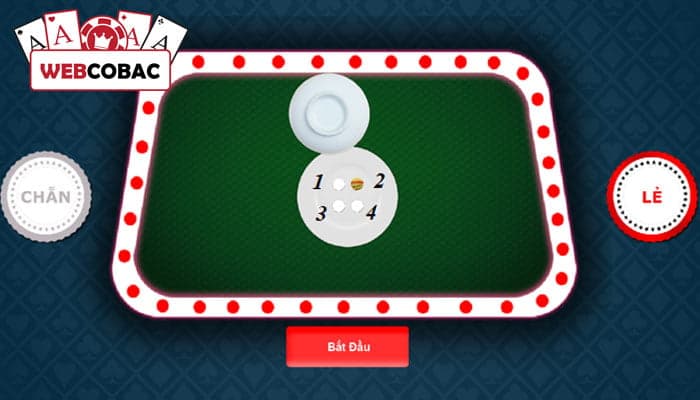The 8-card Phom game from Haiphong has become a favorite among gambling fans. At first glance, the rules are fairly simple and easy to pick up.
However, since this is a real-money game, success takes more than luck. You’ll need plenty of hands-on experience, along with strong observation skills and sharp judgment to truly master it.
What Is 8-Card Phom (Haiphong Style)?
8-Card Phom, also known as “Ù Haiphong”, is a popular variation of the traditional Phom game. Each player is dealt 8 cards, while the dealer receives 9 cards, and the game is played using a standard 52-card deck.
The objective? Players go through a series of turns discarding and drawing cards, aiming to form sets or runs. If no player declares a win (known as “ù”) by the end of the round, the player with the lowest point total wins.
This version plays similarly to the 9-card Phom format, with only slight differences in starting hands.
If you’re new to the game, a great way to practice is by trying out Phom games on Facebook or other casual platforms before diving into real-money matches.
Rules of 8-Card Phom Hai Phong
The rules of 8-card Phom are straightforward once you get the hang of them. Just keep these five key points in mind:
- Starting the Game: Each player is dealt 8 cards, while the dealer gets 9 cards and takes the first turn.
- Drawing and Discarding: On each turn, a player has the chance to take the card discarded by the player before them. If they don’t want it, or can’t use it, they must draw a card from the deck (called “nọc”). After drawing or taking a card, the player must discard one card.
- Winning with “Ù”: The game continues in rounds until someone declares “ù” (a winning hand) or the draw pile runs out.
To “ù,” a player must have all cards arranged into valid Phoms (sets or runs), no unmatched cards allowed. - If No One Wins with “Ù”: If no one declares “ù,” the game moves to scoring. Each player adds up the total value of their remaining cards after laying down and sending cards.
The player with the lowest total score wins.: Sending Cards to Lower Your Score
After laying down their own Phoms, players are allowed to send extra cards to match other players’ laid-down Phoms. This helps reduce their total score and increases their chances of winning the round.
How to Play 8-Card Phom (Haiphong Style)
The gameplay in 8-card Phom follows the official rules closely, but there are a few special cases worth noting that can have a big impact on the outcome.
Standard Play
In normal play, the game proceeds as described in the rules. However, if you manage to form two Four-of-a-Kinds (quads) or an 8-card straight, your total score is considered 0, essentially a perfect round.
Special Situations to Watch For
- Extra Turn (Thêm Vòng): If a player manages to eat a card (form a Phom) on the final round from the player just before them, the previous player gets an additional turn.
- Perfect Win (Ù Tròn): This happens when all 8 cards in your hand form complete Phoms. It’s called a “perfect hand” or “white win,” and it means you automatically win. All other players must pay out.
- Penalty Win (Ù Đền): If a player eats three consecutive cards from the same opponent, and then wins with a final Phom, that opponent is considered to have “fed the win”. In this case, that player must pay the full penalty on behalf of all others.
These situations can occur at any point, especially in the final round, and they often carry more weight than just regular point scoring. Getting hit with a final-round card (bị ăn chốt) can result in heavier losses than simply having the highest score.
Want to practice? Try downloading a Tá Lả (Phom) game on your computer—it’s a great way to sharpen your skills before playing for real.
Key Tips for Playing 8-Card Phom Effectively
No matter which version of Phom you’re playing, practice is essential. Let’s break down some essential tips to improve your gameplay in the 8-card Haiphong variant:
1. Think Logically
To play 8-card Phom well, you need to develop strong logical thinking skills. This comes with a solid understanding of the rules and consistent practice.
Phom is a game that demands brainpower—if you’re just playing randomly or relying on luck, your chances of losing are high. That’s a common mistake among beginners, who often discard cards without much thought.
Strategic thinking allows you to:
- Control the flow of the game
- Capitalize on junk cards played by others
- Minimize the risk of opponents taking your final discard (“ăn chốt”) and penalizing you
2.Be a Careful Thinker
Logic alone isn’t enough, you also need to stay sharp and cautious throughout the game.
Every action matters: drawing, discarding, and taking cards must all be deliberate and well-considered. Rushing can easily expose your hand or fall into traps set by opponents.
One smart habit shared by experienced players: frequently reshuffle your hand (within the rules). This prevents observant opponents from memorizing your card positions or predicting your strategy.
3. Watch Your Opponents Closely
Carefully observing your opponents is one of the most powerful tools in Phom.
- Pay attention to hesitation, indecision, or noticeable shifts in behavior, they can signal the strength or weakness of a hand.
- Sometimes, an opponent’s facial expressions or body language can reveal frustration or confidence.
If you fail to read your opponents or their playing style, it’s easy to fall behind. Instead, stay alert and track:
- The types of cards they’re discarding
- What they’re picking up
- How the round is flowing overall
The better you understand their approach, the easier it becomes to adjust your strategy and make better decisions. This skill is just as important in 9-card Phom and takes time and practice to refine.
Conclusion
8-Card Phom (Haiphong Style) may have simple rules, but winning consistently takes practice, observation, and smart decision-making. Hopefully, the tips and strategies shared here help you sharpen your gameplay and build confidence at the table.
The more you develop your ability to read the game and predict your opponents, the better your chances of winning—and unlocking some great rewards along the way.
If you’re eager to expand your knowledge, consider trying out Southern-style Tá Lả (Phom) as well. It’s a great way to broaden your skills and deepen your understanding of this classic Vietnamese card game.









![Basic and Detailed Table Tennis Rules from A to Z [Updated 2025]](/_next/image?url=https%3A%2F%2Fvaobo88.com%2Fwp-content%2Fuploads%2F2025%2F05%2F1-6.jpg&w=3840&q=75)







